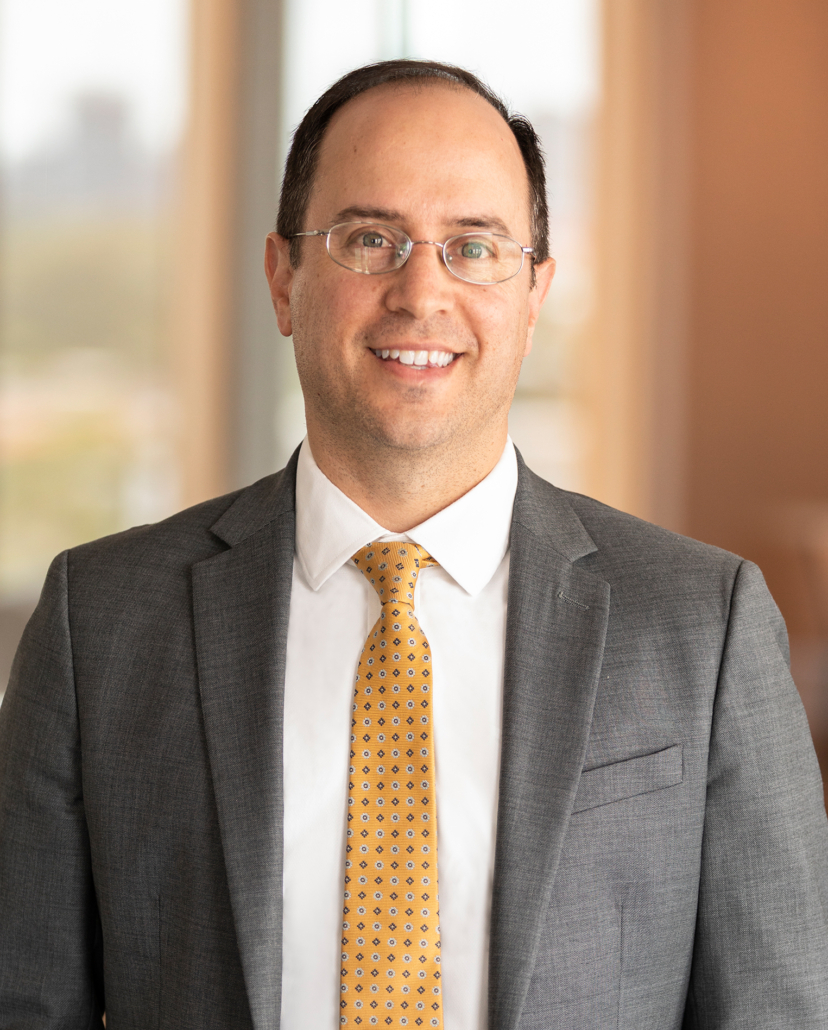By Daniel DiClemente
In June 2021, the Supreme Court of the United States released its opinion in NCAA v. Alston, 141 S.Ct. 2141 (2021). Could college football be heading back to the court system? Florida Governor Ron DeSantis, in discussing Florida’s new budget, stated in a news conference that the State may be “setting aside $1,000,000 for any litigation expenses that may become as a result of this really, really poor decision.” U.S. Senator Rick Scott just sent a Letter to the College Football Playoff Committee. Scott demanded text messages, emails, meeting notes, transparency of the selection process, ethical standards, and conflict of interest standards. That sure sounds like documents that would be used in litigation.
The 2023 College Football Playoff Selection
Tension for college football fans and players are at an all-time high with the College Football Playoff Selection Committee’s December 3, 2023, decision to select the University of Michigan, the University of Washington, the University of Texas, and the University of Alabama for the College Football Playoff (“CFP”).
This decision left Florida State University (“FSU”), the undefeated Champion of the Atlantic Coastal Conference (“ACC”), out of the CFP. This is the first time an undefeated Power Five Conference Champion has been left out of the CFP. The ACC Commissioner and FSU Head Coach both issued statements expressing frustration and concern over the selection process.
The Current State of College Football: Money, Money, Money.
The financial implications of this decision cannot be understated. College football is a money-making machine in America and is growing like crazy. Over 22 million people watched the 2022 CFP Final between Alabama and Georgia, 19% more viewers than the 2021 CFP Final. The Big Ten Conference generates over $1 billion annually through its television contracts. Texas A&M University is paying its former head coach over $75 million just so they could fire him. The University of Texas back-up quarterback Arch Manning’s name, image, and likeness (“NIL”) value is estimated at $3.8 million. The University of Georgia spent $4.5 million last year in recruiting players.
This is not your father’s college football. In 2014, the championship expanded from two teams to the current four-team CFP, and the CFP is expanding to twelve teams next year. Student athletes are now allowed to transfer easily to other schools via the “transfer portal” and can make money by signing NIL deals. Student athletes want to play for the best teams, play for a national championship, and sign the biggest NIL deals. They will commit to a particular school or even transfer to do so.
This means the best conferences, particularly the Southeastern Conference (“SEC”) and the Big Ten, continue to get stronger. They have an advantage recruiting the top high school players, adding top players from other schools via the transfer portal, adding top schools from other conferences, and signing lucrative television deals. And now, apparently, an advantage in qualifying for the CFP.
The next question stirring in law firms, the CFP offices, Tallahassee, and other College Football inner circles is whether this will create litigation.
If FSU and the ACC File a Lawsuit, who are the Potential Defendants?
FSU and the ACC can look into bringing legal action against CFP Administration, LLC, a company that manages the administration operations of the CFP. The eleven members of the LLC are the ten FBS conferences and the University of Notre Dame. There is a “Board of Managers,” and a “Management Committee,” each composed of eleven individuals from each conference (and Notre Dame). There is also a “Selection Committee” that determines the CFP teams. The Selection Committee members are listed on the CFP Website. CFP Administration, LLC, and individual LLC members or officers could be potential defendants.
Other potential defendants could be anyone that unlawfully interfered with the operations of CFP Administration, LLC. If powerful individuals or groups exerted influence to affect the CFP decision-making process, such actors could potentially be brought into litigation. Some examples include bribery or inducing a member or officer to breach their duties.
Could FSU and the ACC Prevent or Join this Year’s CFP?
Probably not.
One reason for bringing a lawsuit could be to try to prevent the CFP from happening this season (or joining the CFP), which begins January 1, 2024. This would likely be what lawyers call “injunctive relief” or an “injunction.” An injunction generally requires (1) irreparable harm; (2) that the threatened harm outweighs the harm to the opposing party; (3) that the injunction is not adverse to public interest; and (4) that the moving party has a substantial likelihood of success on the merits.
Once the CFP occurs without FSU, FSU and the ACC will have suffered “irreparable harm.” The CFP is a unique opportunity for a team to win a coveted national championship. Winning a national championship often gives players a better chance to get drafted into the NFL, gives coaches and staff members more opportunities for promotions, and creates better career opportunities for everyone involved (such as in broadcasting or school administration). Moreover, a national championship is a unique chance to etch one’s name in the history books and achieve college football glory. In other words, losing out on the CFP is not something money can replace. Deprivation of participating in the CFP is, in all likelihood, an “irreparable harm.”
However, the remaining elements for an injunction will be difficult for FSU and the ACC to prove. An injunction delaying the CFP could prevent the 2023 CFP from ever occurring. The harm of stopping the CFP will cause immense financial losses for all conferences, create an immense waste of financial resources, and will implicate peoples’ jobs and expensive contracts with third-party partners, like ESPN’s television contract with the CFP. FSU and the ACC would have a difficult time showing a “substantial likelihood of success on the merits” since this is far from a clear-cut case. Due to these issues, FSU and the ACC would probably not be able to obtain injunctive relief. Even if FSU and the ACC tried to use the court system to try to stop or join the CFP, the CFP will likely still go forward with Michigan, Washington, Texas, and Alabama.
Could FSU and the ACC File a Lawsuit for Damages?
Another reason to file a lawsuit would be for damages, i.e., money. This is where it gets more interesting.
The ACC loses out on an additional $2 million for not qualifying for the CFP. FSU, the ACC, and the players suffer from loss of advertising, brand value, and potential NIL deals. It follows that FSU and the ACC may want to sue for damages.
One logical cause of action could be “breach of fiduciary duty” against the CFP Administration, LLC, the LLC members, or the LLC officers. The LLC members, in this case the ten conferences and Notre Dame, owe certain duties to the LLC and the other members. The Selection Committee members likely owe duties, too. If these duties were violated, then there may be a viable lawsuit.
One duty is the “duty of loyalty.” If an LLC member or officer owed a duty of loyalty but made a decision motivated by self-interest that was not in the best interest of the LLC, then that party may have violated their duty of loyalty, exposing them to liability.
Another duty is the “duty of reasonable care.” If LLC members or officers had specific duties to perform when determining the schools in the CFP or the individuals on the Selection Committee, and they failed to exercise reasonable care in carrying out those responsibilities, they may have violated their duty of reasonable care. Moreover, the LLC must follow its own rules. If, under the LLC’s rules, FSU should have been included in the CFP, there may be a violation of the duty of reasonable care.
On the other side, if the CFP Administration, LLC vests the members and/or Selection Committee with discretion in determining the CFP teams, and those individuals fully complied with their corporate duties, it would be difficult for FSU and the ACC to prevail in such a lawsuit.
It should be noted that the CFP Administration, LLC’s corporate documents and/or contracts, as well as FSU’s and the ACC’s documents and/or contracts, may have arbitration clauses, immunity provisions, limited fiduciary duties, or other terms that impede FSU’s and the ACC’s ability to take legal action in court.
What’s Next?
FSU and the ACC should evaluate whether they can bring a lawsuit, and the likelihood of success. Not only are there millions of dollars at stake, but pursuing this litigation publicly will pressure the Selection Committee to have a more transparent selection process. Additionally, FSU and the ACC may think that litigation will help them in the future, minimizing the Selection Committee’s bias against ACC or other conferences.
FSU and the ACC should also be evaluating the corporate documents and contracts of the CFP Administration, LLC, as well as identifying any LLC members, officers, or outside parties that may have interfered with the selection process. They need to identify if there are any important documents and obtain those documents. This could be through an informal process, through the LLC’s procedures, or maybe even via subpoenas. These documents could include contracts, internal LLC procedures, emails, text messages, and meeting minutes. FSU and the ACC may even want to take the depositions of certain individuals, such as Selection Committee members.
From the outside looking in, it appears FSU and the ACC will have an uphill battle if they tried to prevent or join the CFP.
But can FSU and the ACC achieve a different positive result in litigation? Did the LLC members or officers breach their fiduciary duties? Did an outside party unlawfully interfere with the selection process? Could FSU and the ACC recover millions in damages, find faulty CFP procedures, or get their hands on a “smoking gun” in discovery?
We’ll see.













